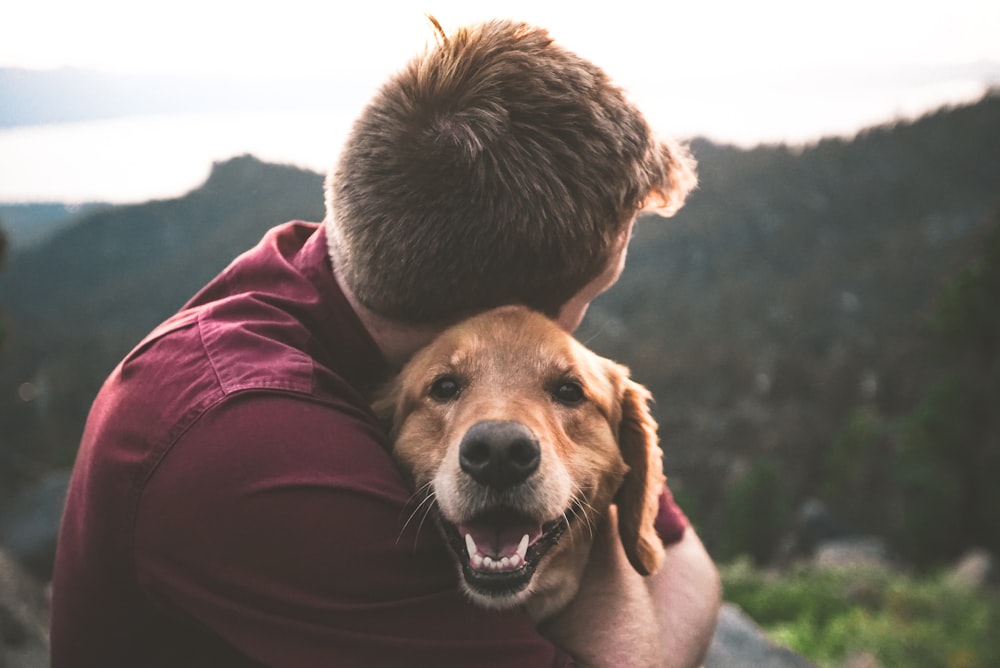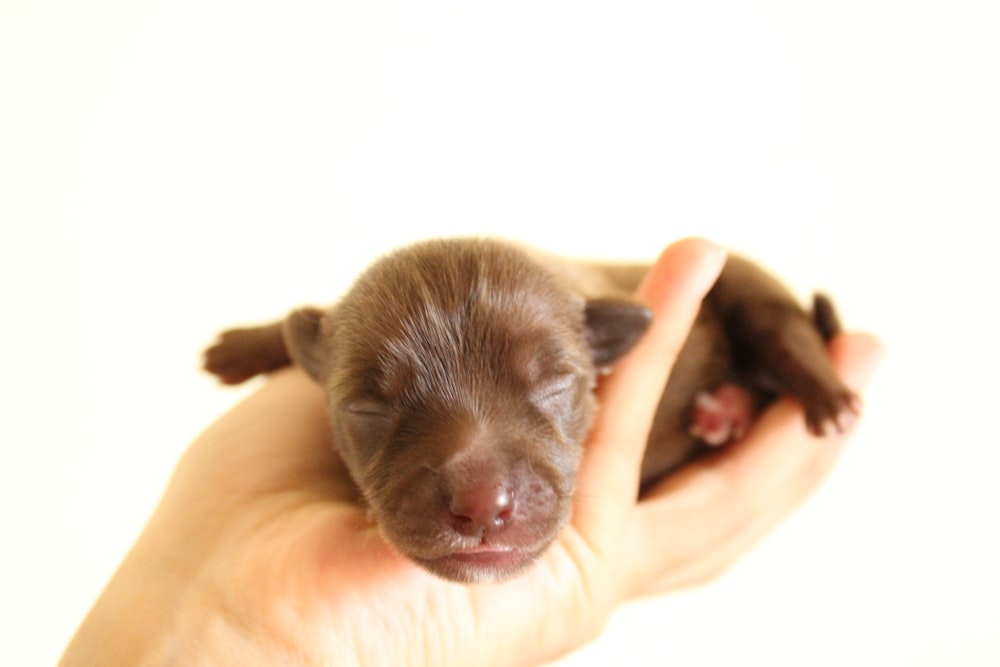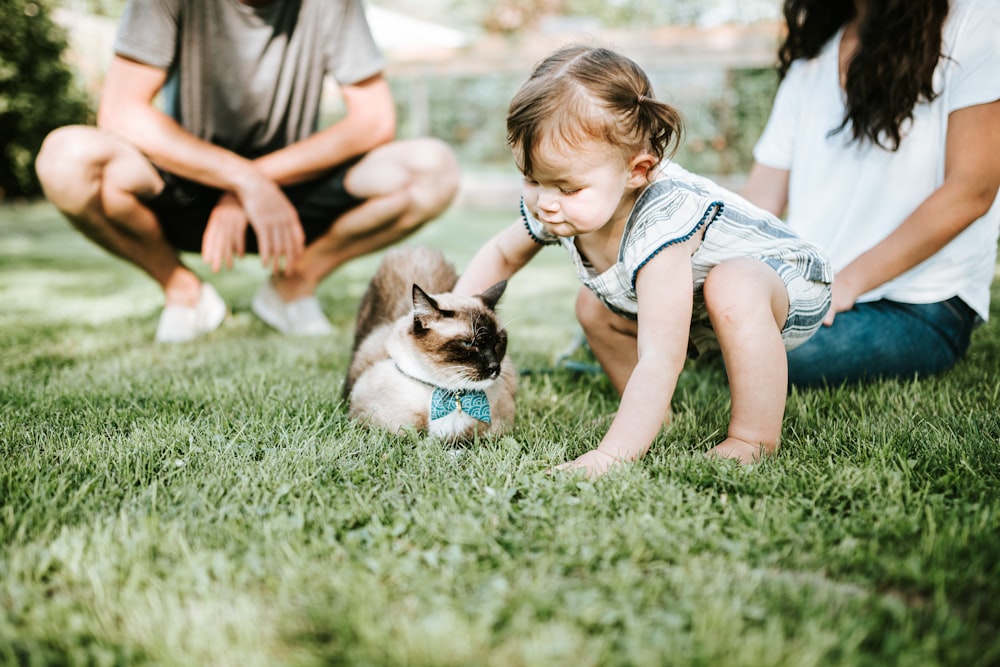The Ethics of Keeping Pets: Why Love is Not Enough

I have been thinking about the ethics of keeping sentient animals as pets. As someone who has lived with dogs, cats, rats, mice, gerbils, rabbits, lizards, guinea pigs, and chickens, I have experienced first-hand the joy and companionship that such creatures can bring to our lives and the love that we can have for them. Yet, as a philosopher interested in animal ethics, I am aware of the many moral problems associated with our practice of keeping animals as pets. These problems have led me to reconsider human-animal companionship, and I have come to think that no matter how much we might love the animals we bring into our homes, we cannot justify doing so.

Not All Pets Are Loved
I do not want to romanticise existing human-pet relationships. Not all pets are loved. Many are abused, neglected, and abandoned. (I have written here before about what we owe to abandoned pets.) This is not a marginal problem. In the UK, where I am based, there are an estimated 1.1 million homeless companion cats and dogs – 970k street/stray cats; 67k street/stray dogs; 42k cats and dogs in shelters (Mars Petcare, 2020). And in 2021, the RSPCA received 1,081,018 calls to their cruelty line, which is equivalent to more than one call every 30 seconds. They also report collecting an abandoned animal every hour in the summer months.
Even when animals are not abused or abandoned, owners frequently fail to meet their animal’s most basic needs. For example, of the estimated 1 million pet rabbits in the UK, 190,000 live in inadequate housing conditions, 46% are kept alone with no other rabbits for companionship, and 21% of rabbit owners report not interacting with their pets for an average of 24 hours at a time (PDSA, Paw Report 2022). Since rabbits are highly active, social creatures, solitary confinement in a cramped hutch falls far short of the conditions needed for rabbits to flourish.
One might think that the scale of harm already experienced by companion animals is sufficient to cast doubt on the morality of keeping pets. But the fact that some people don’t love or adequately care for their pets is not necessarily a barrier to ethical pet keeping. There are lots of measures that might be implemented to mitigate the problems just discussed. We could, for instance, reform our current laws, policies, and systems of social support to place tighter restrictions on breeding practices, better protect vulnerable animals, and ensure human guardians have the time, skills, and resources to care for their animal companions. If pets were treated better than they are currently, would that make pet keeping morally permissible? Can we keep pets if we love them and treat them well?
“But My Pet is a Member of the Family!”
The popular answer to this question is “yes”. Lots of people regard their pets as members of the family. They love and care for their pets as they do human family members, and that love is typically reciprocated by their animal companions. These bonds of interspecies love, care, and empathy are cherished and declared valuable to all involved. Consequently, it is widely believed that pet keeping benefits nonhuman animals as well as human animals: it is good for our nonhuman companions to be kept safe by us, to have their basic needs met by us, to love and be loved by us, and to interact with us.
I have come to doubt this. No matter how much we love our pets, and no matter how much we might desire to have them, there is something fundamentally problematic about keeping animals as human companions. To be someone’s pet is to be extremely (and permanently) vulnerable to harm and exploitation and this is a social position that we have a moral duty to avoid creating or imposing upon individuals.

Pets, Power, and Vulnerability
The relationship that exists between humans and their pets is inherently asymmetrical in terms of power, dependency, and vulnerability. This asymmetry is manifest in three crucial ways. First, pets are always vulnerable to the whims and vices of their human guardians (the human guardian is not similarly vulnerable to the domesticated animal). This vulnerability is exacerbated by the fact that our pets are unable to leave, seek help, or hold abusive or neglectful owners to account. Second, pets are always dependent on human guardians for the fulfilment of their basic needs. Though humans may rely on their pets for emotional support and companionship (see Zsuzsanna Chappell’s insightful analysis of pet ownership as a means to improve human mental health), no human depends so entirely on their pet as their pet does on them. Third, humans always have ultimate control over what their pets do, how their pets are treated, who their pets interact with, and whether their pets have access to basic goods. This means that pets have very limited opportunities for self-determination and that they lack control over almost all aspects of their daily lives, for the whole of their lives.
Since humans have more power and ultimate control over the lives of their pets, pets are extremely vulnerable. Though all may go well for pets if their guardians love them, it can go terribly wrong when love is absent. To my mind, the extreme vulnerability of pets is morally unacceptable. It is not acceptable that an individual is rendered so dependent on others or so vulnerable to being harmed by those tasked with caring for them.
Importantly, the vulnerability of pets in human-animal relationships is not accidental nor natural but a result of our desire to have animals live in our homes as our companions. This means that the vulnerabilities that pets are exposed to are created by us to satisfy our wants and ends. Insofar as it is wrong to intentionally expose individuals to extreme vulnerability and significant risks of serious harm, we have a duty not to bring more pets into existence. For these reasons, loving our pets is not enough to make pet keeping a morally acceptable practice.
What Should We Do?
All existing domesticated animals are entitled to good lives. So, we are each under a duty to ensure that all those who are here already have what they need to flourish as the kinds of creatures that they are. This duty may be satisfied by, for instance, rehoming a shelter animal, improving the life of someone else’s animal companion (e.g., walking the dog of an elderly neighbour or relative), volunteering at an animal shelter, or donating to an animal shelter.
Yet we are also under a duty to end the practice of pet keeping. This means that we must refrain from breeding animals, selling animals, and purchasing animals. For those of us with pets, we have a responsibility to prevent those animals from reproducing if their young must live with humans to survive. For sure, this means interfering with the reproductive freedoms of existing pets, but such interference is justified to end the practice of deliberately creating extremely (and permanently) vulnerable and dependent beings.

 Photo by
Photo by 

These are such interesting ideas. As a society, e should definitely rethink our relationship towards animals.
But I have doubts about the end of it. What would happen with those animals (such as dogs) that do not exist in the wild anymore? Should they be reintroduced after thousands of years?
Yes, dogs nd cats are animals, they belong to the wild not man made sheltered home and hand fed. Humans think they are ‘saving’ them??? From what? Humans should stop using animals for their own benefit and release them to nature, stop taking kittens and puppies away from their mothers!!! That’s animal cruelty!!!
Hi Animal Rights,
While I agree that humans must stop treating animals as means to our ends, there are complicated questions about what we owe to the animals with whom we share our homes and communities. Releasing animals who do not have the skills to survive in the wild would not be a good response to the injustice that they have already experienced because it will likely result in suffering in death. Moreover, some animals are fortunate enough to have loving and competent human guardians, and so would likely have a preference to stay in those relationships. In such cases, it would be an injustice to force them out of their homes and into the wild. Of course, we can worry about why animals come to have the preferences that they do, but that does not mean that their preferences are irrelevant to what they are owed.
All this means that we need to think carefully about our next steps. The last thing we want is to heap more injustice upon already wronged animals.
Thanks for taking the time to read and respond to my post.
Angie
The ethics of keeping pets is a complex issue that goes beyond love and companionship. While pets can bring immense joy and comfort, there are significant moral problems associated with their care. Many pets suffer from neglect, abuse, or inadequate living conditions, leading to questions about the morality of pet ownership. Even with love and good intentions, the fundamental vulnerability and dependence of pets highlight the ethical concerns we must consider before bringing animals into our homes.
this holds true for children or the elderly, this can also be applied to social programs i.e., housing, welfare, incarceration etc etc in which the disenfranchised who are being helped or cared for or tended to are subject to being controlled…hence the term: “Care is control”
Hi William,
Thanks for your comments.
While I think you are right to point out that caring typically involves control and that this can be as much of a problem for vulnerable humans as it is for pets, I do think there are important differences between pets, children, and the elderly. One thing that I think is significant is that dependency and vulnerability are a fact of human life, especially at the beginning and end of life. We cannot change that fact. However, with pets, the situation is more complex. Pet keeping is not a fact of animal life rather pets are socially positioned as dependent upon and vulnerable to us because of a choice that we humans make. If humans simply chose not to have pets, then animals would not be vulnerable to us in the ways described.
Angie
Your contemplation on the ethics of keeping pets brings up crucial points about the responsibilities and moral dilemmas involved. It’s undeniable that many pets suffer from neglect and mistreatment, highlighting the ethical challenges of pet ownership. While some argue pets benefit from loving homes, the vulnerability and asymmetrical power dynamics are concerning. Implementing stricter regulations and improving care standards are vital steps towards ethical pet keeping. Your insights prompt reflection on how we can better safeguard animal welfare amidst our desire for companionship.
cats are exempt…cats hold dominion over their owners
Hey Angie! I love your article, because it has put into words what I have instinctively felt for the past few years. I love animals, but… I don’t think we should keep them as pets. I dislike the term pet even, because it does imply a relation of hierarchy where one being is under the control or “ownership” of another. Even the idea of a leash or a cage gives me the creeps, because again, dogs are subject to something as basic as lack of freedom of movement.
I was having a conversation about this with a friend (of course, somebody who has a pet) the other day, and they had the argument that, their cat/dog and most other stray dogs/cats have arguably a much more difficult and cruel life on the streets… and I couldn’t think of a response to that, but I know that there are some assumptions in there that I find problematic. Would you be able to perhaps shed light on this?
Hi Ana,
Thanks for your reply! I’m glad that I was able to help you articulate some of your concerns.
You are quite right about the connotations associated with the term “pet”, which is why many people have moved away from that language to speaking of “animal companions”. However, to my mind, the term “pet” more accurately captures the reality, which is that animals kept as companions are subordinate in their relations with us. It may make us uncomfortable but I think the term “pet” helps to bring the hierarchical nature of the relationship into stark relief (and calling it companionship only serves to obscure that relation of dominance).
I think we can agree that there are many free-living domesticated dogs and cats who have lives that are blighted by suffering. There are also many (if not the majority) of non-domesticated animals who have lives that are similarly blighted by suffering. The question then is what we are morally required to do in response to that suffering e.g., support those animals in the community, bring them into our homes, manage their populations so there are fewer of them, and so on. A further question is whether suffering is all that we should care about or whether there are other interests that animals have that might tell against interference such as an interest in self-determination.
I think that while suffering is bad for any creature we need to be careful about assuming that we always know what is best for others. In the case of competent human decision-makers, we typically think that those individuals should be free to make decisions about how to lead their lives even when doing so comes with significant risks of harm. I would argue that a very similar story holds for competent nonhuman decision-makers.
I will make this subject of my next post to give you a better sense of why we’re not the only animals who have an interest in being self-determining and why that might mean that sometimes letting animals be is the morally right thing to do (even when doing so may result in suffering).
I am free ranging it right now, but here goes my unfiltered, unreflecting stream of (consciousness
(questionable). I believe that all dogs should be euthanized to end their enslavement by humans
and end the suffering of these highly sensitive and emotional animals that have long suffered psychologically through genetic manipulation through inbreeding and selective breeding so
they are programmed to not run away or attack their owners, but to actually love them despite the gross inequalities. I believe that the enormous sum of money that has hither-to-for been engorged by the greedy people making billions off the pet industry, should then been be solely used to fund saving wild animals from extinction. I may wake up tomorrow with regrets that I wrote this since I am very tired.
while I agree on the most part, I think that buying pets is not the issue. Adopting pets makes animals easy to access, therefore making those animals easily end up on the wrong hands. I believe that we should start making pets less accessible, like selling them (by ethical breeders and organizations that breed and take care well of their animals.) they should not be free or cheap AT ALL, this will make them easily accessible to the wrong people. Another thing that would help is having strict rules regarding pet ownership, and maybe even tests and evaluations made towards people looking to get an animal.
Hi Miranda,
Thank you for your comment. I am very sympathetic to your position and I wrote this new post with your thoughts in mind: https://justice-everywhere.org/general/the-heart-wants-what-it-wants-but-that-doesnt-make-it-right/#more-6786
Angie
A must-read for all pet owners! The bond with a pet should be built on responsibility, respect, and providing a quality life, not just emotions.
So true! Many people adopt pets out of love but forget that ethical pet ownership requires time, effort, and a lifelong commitment.
This was such a thought-provoking read. It’s easy to think love alone is enough when caring for pets, but this article highlights how much deeper our responsibilities go. Ethical pet ownership involves understanding their needs and behaviors and ensuring their well-being beyond affection. Thanks for raising such important points—definitely gave me a new perspective on what it truly means to care for animals.
Hi Srujana,
Thanks for reading and responding to my post – I’m glad you found it useful. If you’re interested in a longer version of the argument, you can find it here: https://richard-healey.com/wp-content/uploads/2025/01/pets-power-and-legitimacy_rr_final-draft_prepub.pdf
Angie
I appreciate how this article goes beyond emotional attachment. Ethical treatment, mental stimulation, and species-appropriate living are often neglected topics. A much-needed perspective.